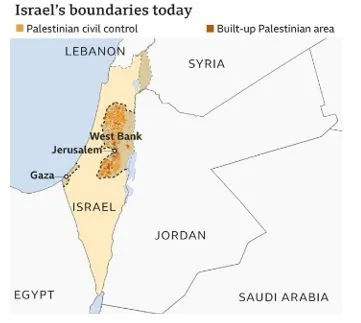

23rd May 2024 (15 Topics)
Context
Ireland, Norway, and Spain have announced their formal recognition of Palestine as a state.
A Brief History of the Conflict (Background):
- Recognition of Palestine state is a long-standing issue between Israel and the Palestinians.
- Two-State Solution: In 1947, the United Nations proposed a partition plan for the creation of both a Jewish and Palestinian state. However, the Palestinians and the wider Arab world rejected it because it favored the Jewish population, leaving Palestinians with less land despite being the majority.
- Subsequent conflicts, particularly the Arab-Israeli war in 1948 and the Six-Day War in 1967, resulted in Israel gaining control over Palestinian territories.
- Current Situation: Decades of peace talks have failed to resolve the conflict, with the United States, Britain, and other Western countries supporting the idea of an independent Palestinian state alongside Israel.
What does this recognition signify?
- While Ireland, Norway, and Spain's recognition of Palestine won't immediately change the situation on the ground, it carries symbolic significance.
- It enhances Palestinians' international standing and increases pressure on Israel to engage in negotiations for peace.
- Who Recognizes Palestine? Nearly three-quarters of UN members recognize Palestine, primarily countries from West Asia, Africa, and Asia. However, major Western powers such as the United States, Canada, most of Western Europe, Australia, Japan, and South Korea do not.
- Palestine currently holds an enhanced observer status at the UN, allowing participation but not voting rights.
- It's also recognized by organizations like the Arab League and the Organisation of Islamic Cooperation.
Fact Box:Criteria for Recognition:
What is Palestine?
|



